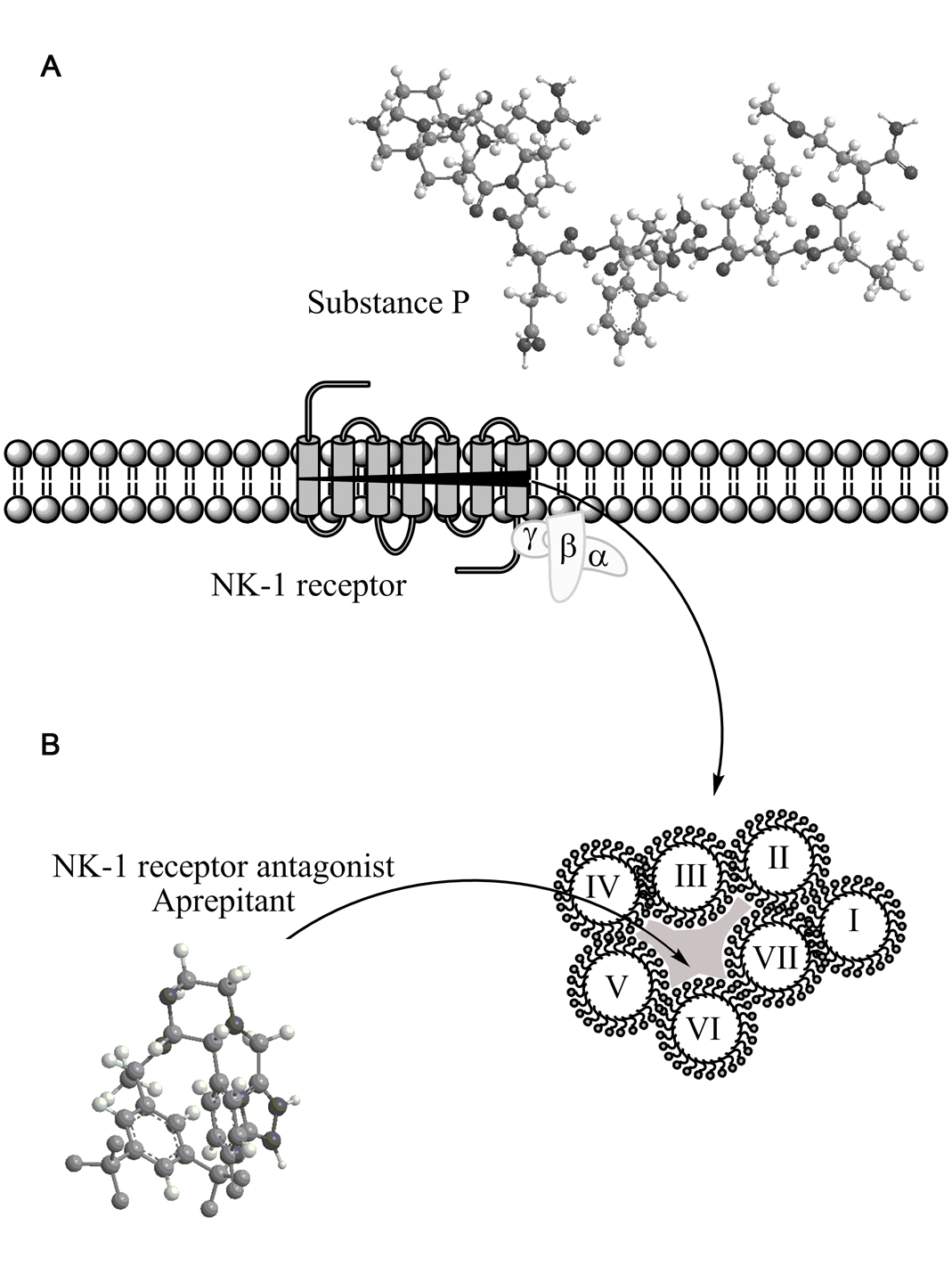NK1-Receptor antagonist
The Bio-mechanism
On the cell membrane (in all mammals, and therefore also in humans) sits a variable number of receptors, which controls the internal cell processes. The receptors are activated by agonists (“On”) and deactivated by antagonist (“Off”). With the emergence and spread of cancer, the NK1 receptor system plays a crucial role.
As the main agonist (“On”) for NK1 receptor was detected substance P (SP). SP is located in all body fluids (blood, cerebrospinal fluid, saliva, etc.) as well as in other body tissues and the nervous system and it is generated by the cells themselves.
SP is known to be responsible for three processes:
– Cell proliferation for cell generation
– Change of cell structure to produce different tissues (e.g., blood vessels (angiogenesis), skin, muscles, etc.)
– Cell migration in to the organism
These three processes take place in the body for cell regeneration growth in children, injury healing, regeneration, intestinal, skin, hair growth etc. and are largely controlled by the NK1 receptor system.
A result of the division of a cancer cell, this cell builds about 1000 x more NK1 receptors, which are first served with the body’s own existing SP. Additionally, it comes to strongly increased cell-own formation of SP in the cancerous cell, which accelerates the above-mentioned processes.
On the formation of cancerous tumours, all three processes is of utmost importance:
– Rapid cell division with uncontrolled growth
– Formation of new blood vessels (neo-angiogenesis) to secure the food demand of the new cells
– Migration for invasion to adjacent tissues and to the spread of cancer cells in the body via the vascular system itself created
In laboratory experiments has been demonstrated that a rapid regression of tumours is triggered off by NK1 receptor antagonists (“off”). In “compassionate use” – “off-label” applications (prematurely tolerated using a drug not yet approved on humanitarian grounds) the effect was clearly demonstrated in humans.
The aim of our website is to share the experience of science basic and practice clinical (translational investigation), and to demonstrate as soon as possible the effect of the NK1 receptor antagonist’s mechanism in clinical trials to make available the results to affected persons.


